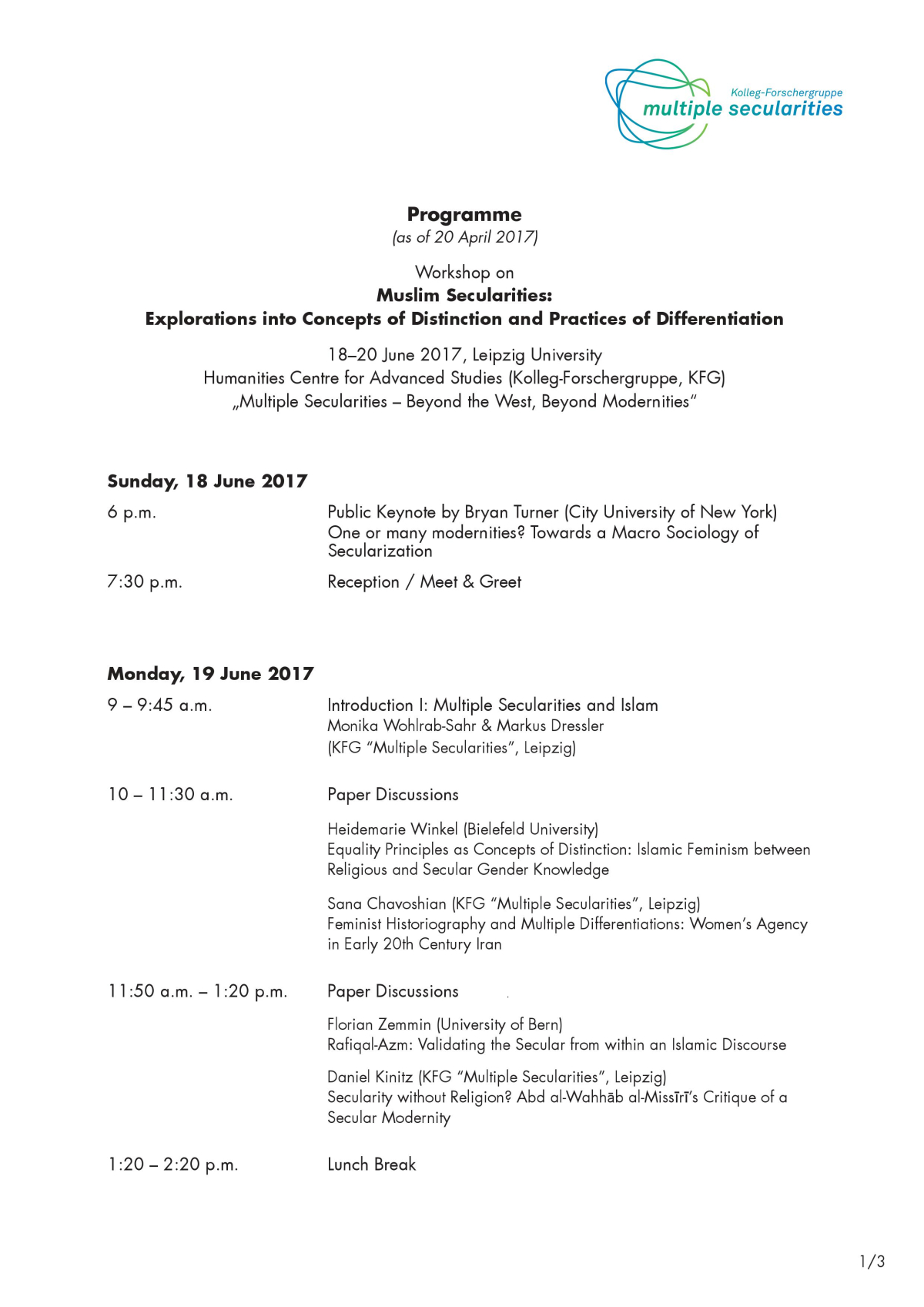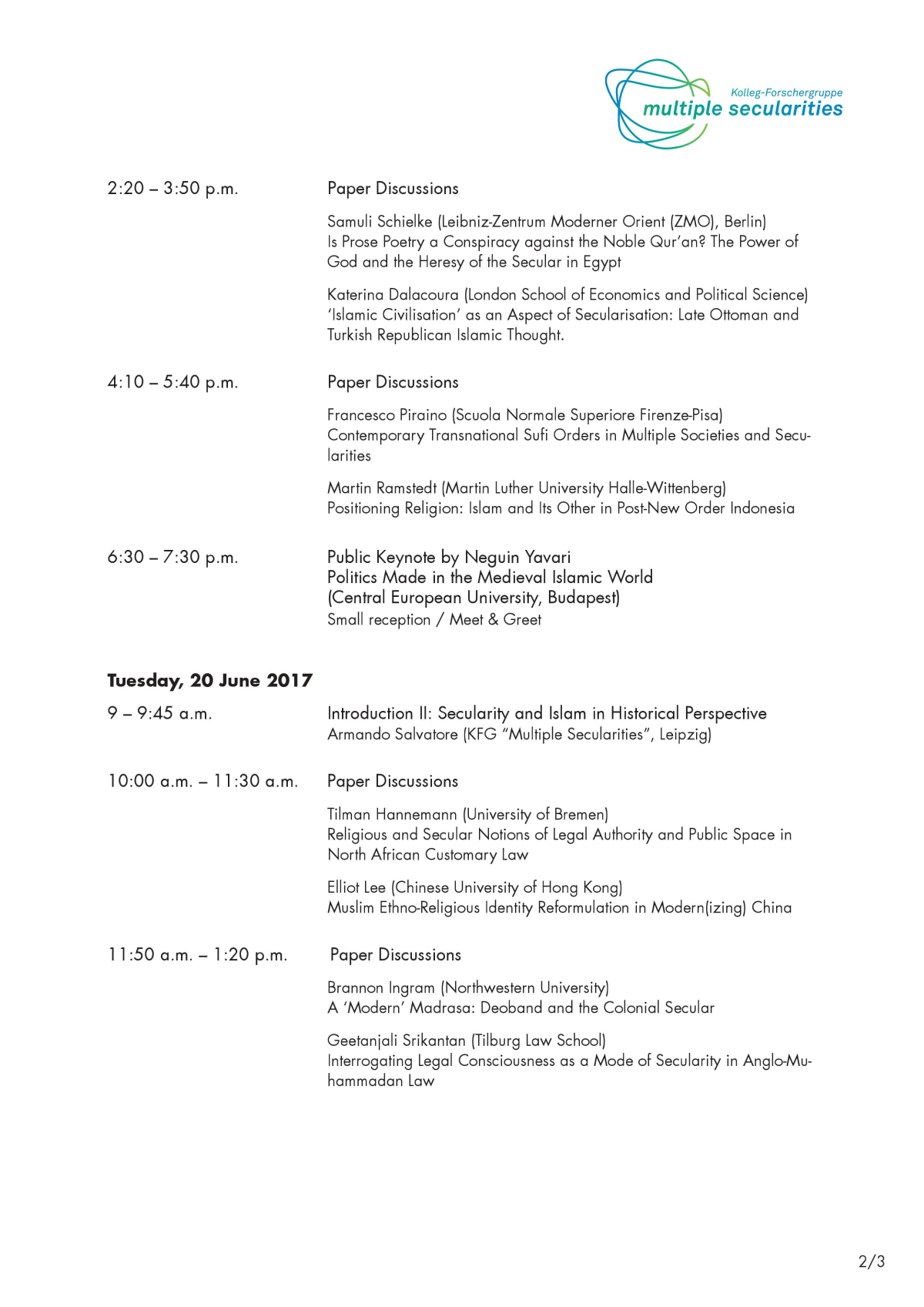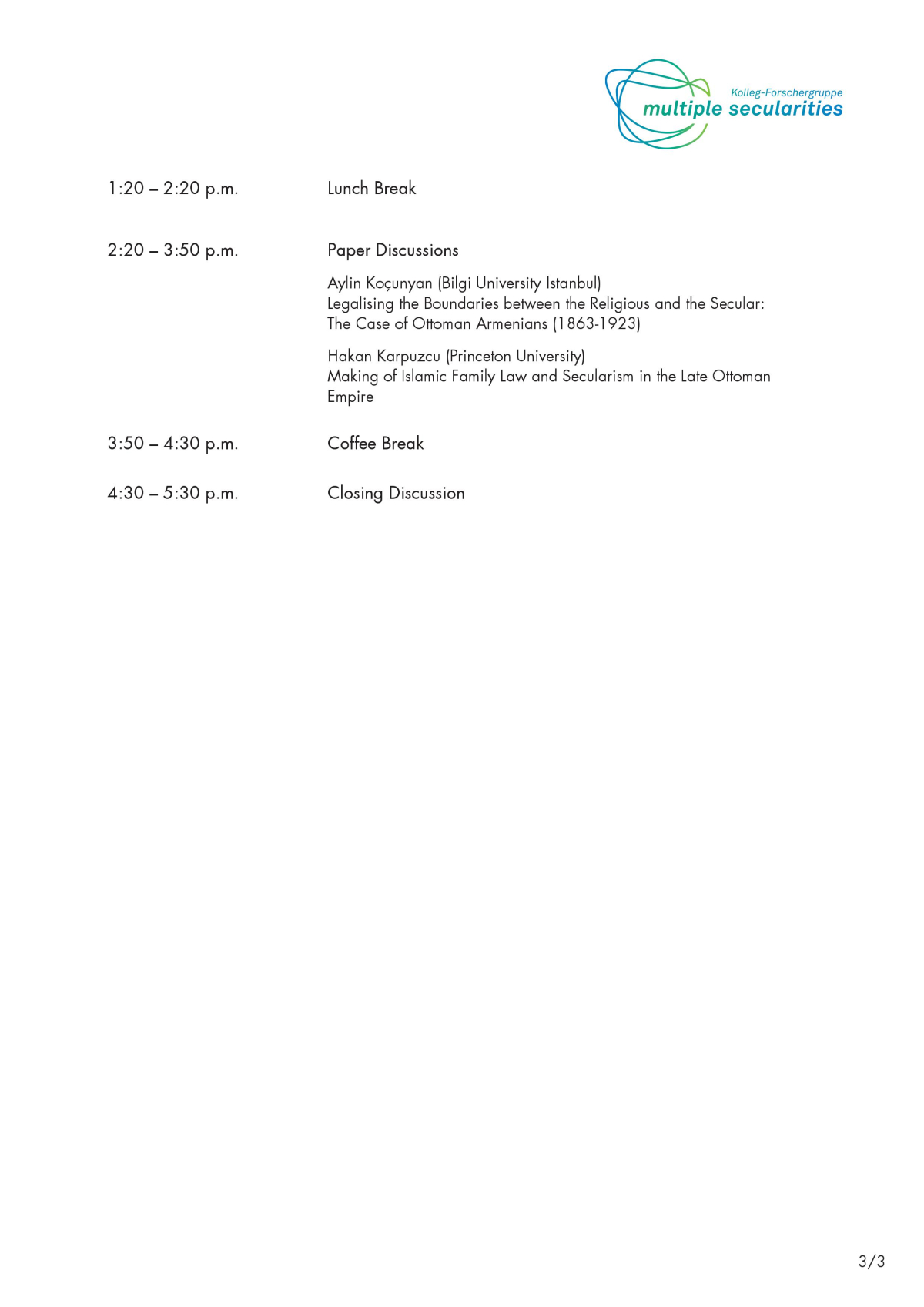Critical studies on secularism have, for at least a decade wielded a
considerable influence on the academic study of Islam. Often inspired by
scholarship in the footsteps of Edward Said and other figureheads of
post-colonial studies, critiques have been launched against the
essentialism and the political complicity of parts of Islamic Studies
scholarship with colonial and imperialist projects. Moving
methodologically and theoretically beyond the limits of post-colonial
critique, the work of anthropologist Talal Asad has more recently
inspired a new school of research that challenges previous frameworks
for investigating religion. Asad directed attention to the way in which
hegemonic knowledge about religion is structured by arrangements of
power vested in a secular episteme.
While recognising the merits of this brand of scholarship, we
nevertheless think that in the course of this debate important research
questions of relevance to the study of secularisation and secularity
have been neglected. The notion of the secular took form within a web of
new emerging concepts, such as society, nationhood, citizenship,
science, or history, gaining traction during the 19th century as a
result of an accelerated globalisation of knowledge largely unfolding
under the aegis of colonial domination. Inner-Islamic traditions of
knowledge interacted with Western concepts in the formation of modern
Islamic discourses and thus affected the ways in which these discourses
have suggested, endorsed, and/or questioned particular distinctions
between religious and secular spheres. Against this background, our goal
is to shift attention to historical and sociological questions
concerning concepts and practices of distinction and differentiation
related to religion and the secular (or comparable concepts) in both
modern and pre-modern times. We are also interested in the historical
conditions under which such concepts and practices emerged and the
processes which they stipulated.
Inspired by the ‘multiple modernities’ framework, the approach to ‘multiple secularities’ promotes research that interrogates conventional assumptions regarding the boundaries of the ‘West’ and ‘modernity’, and aims at a comparative perspective in which similarities and differences as well as continuities and discontinuities can be openly discussed. By probing the existence of a global regime of the secular, this approach places a premium on the relations and tensions between various Western and non-Western settings, and between modern constellations and pre-modern traditions that rest on distinctions between religious and non-religious concepts, practices, and spheres of life.
The workshop gives the opportunity to present selected papers delineating concepts and practices of distinction
and differentiation (and/or their undoing) within Islamicate social and
historical contexts, the conditions of their emergence, and the
socio-economic, doctrinal, and political conflicts that have sustained
them. Selected papers will be published in a special issue of the journal Historical Social Research.





